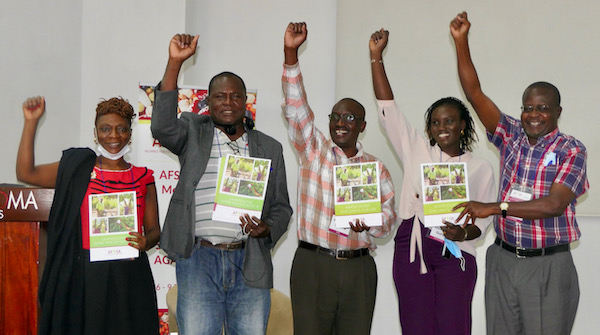The book brings together ten case studies from six countries that demonstrate the benefits of agroecology: bringing the soil back to life, conserving biodiversity, and leaving no one behind.
Tanzania’s hillside farmers show how digging terraces to create beds and building trenches to harvest rainwater prevents run-off and soil erosion. Likewise, farmers in Zimbabwe who previously struggled to find a sustainable water source now have water in such abundance that they can grow rice.Projects in Kenya and Togo have been turning to agroecology to restore soil fertility, making sustainable, organic inputs such as bokashi. Farmers learn to produce them quickly and efficiently on-site using low-cost, locally available materials. Consequently, these bio-fertilisers are cost-effective, rich in nutrients and naturally free from toxic chemicals dangerous to soil and human health.
Agroecology is a social movement that strives to make sustainable farming accessible to all. Inspiring work with more vulnerable social groups restores dignity and independence to those who have struggled to provide for their families. By securing land rights, teaching sustainable land management or agroforestry skills, initiatives across Uganda, Kenya and Senegal show that access to the right education and support means that no one is left behind.
Related:
Tiken Jah Fakoly on Youth and Agroecology

No comments:
Post a Comment